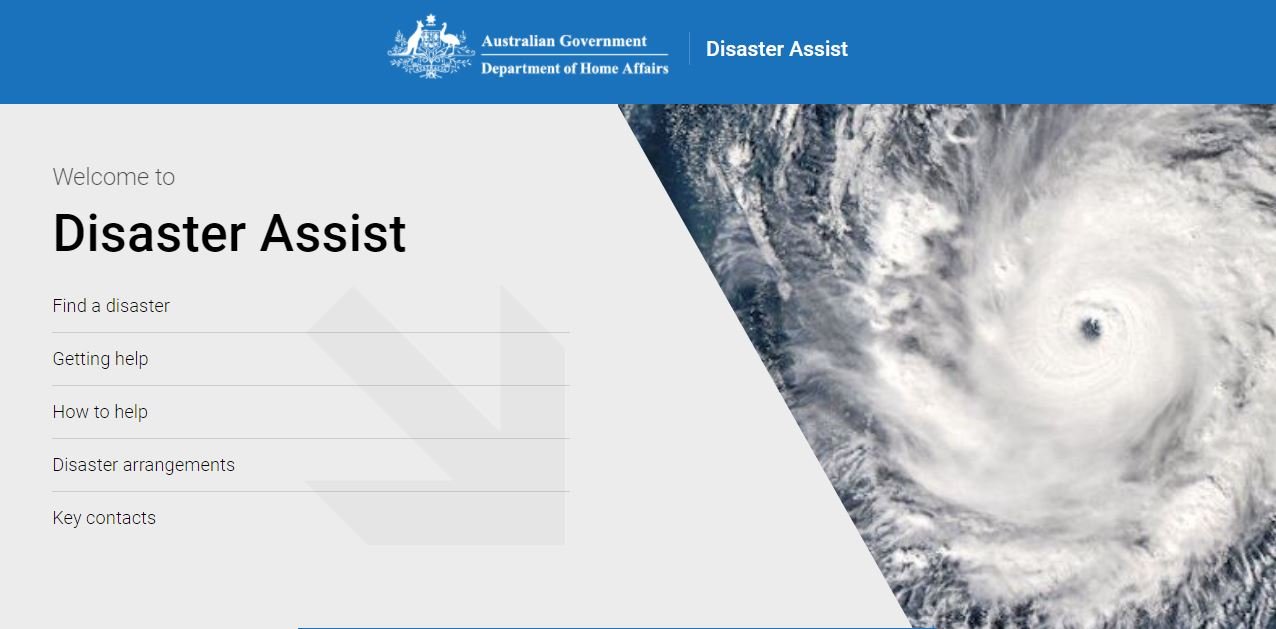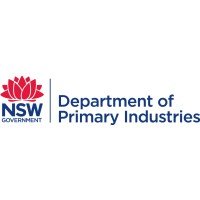Primary Producer Information Links
-

Farm Household Allowance - Services Australia
https://www.servicesaustralia.gov.au/farm-household-allowance
A payment for farming families in financial hardship.
-

Rural Financial Counselling Service NSW (RFCS Northern)
https://rfcsnr.org.au/ or Tel. 1800 344 090
Facing uncertainty?
RFCSNR are here to help you secure your future
Providing free, unbiased, independent, confidential and expert support to farmers, fishers, foresters and other rural businesses
Funded by the Australian Government and New South Wales Government.
-

Rural Financial Counselling Service (Central & Southern)
https://rfcsnsw.com.au/ or call 1800 319 458
Knowledge Is Power. RFCS NSW Can Help You Improve Your Farm Business.
Get in touch for free, confidential support today.
RFCS NSW is a charitable organisation that provides free, unbiased, confidential, and professional advice through our Rural Financial Counselling Service.
We support primary producers in southern, central and far western NSW.
-

Regional Investment Corporation - Australian Government
https://www.ric.gov.au/ or call 1800 875 675
Regional Investment Corporation provides loans that support the long-term strength, resilience and profitability of Australian farm businesses.
-

NSW Rural Assistance Authority (RAA)
www.raa.nsw.gov.au Tel. 1800 678 593
The NSW Rural Assistance Authority (RAA) provides tailored access to financial assistance to help regional and rural businesses and communities in NSW deal with challenges and change.
The RAA has decades of experience delivering loans, grants, rebates and subsidies to primary producers, small business operators and not-for-profit organisations.
The experience informs their ongoing contribution to farming and rural policies, and the advice we provide to the NSW Government, helping to ensure the right assistance is provided at the right time.
-

Disaster Assist
https://www.disasterassist.gov.au/
Search to find the Local Government Areas which have been declared natural disasters.
People in those areas can then apply for disaster recovery payments. Updates are made as each State and Territory makes these declarations.
-

Natural disaster support - Services Australia
https://www.servicesaustralia.gov.au/natural-disaster-support?context=60042
Support for people directly affected by a declared natural disaster.
You may be able to get both Australian Government and state or territory natural disaster support.
To see what support you can get, select your state or territory on the website.
-
Farm Management Deposits
https://www.agriculture.gov.au/agriculture-land/farm-food-drought/drought/fmd
What is the FMD Scheme?
The Farm Management Deposit (FMD) Scheme assists primary producers to deal more effectively with fluctuations in cash flows. It is designed to increase the self-reliance of Australian primary producers by helping them manage their financial risk and meet their business costs in low-income years by building up cash reserves.
The scheme allows eligible primary producers to set aside pre-tax income which they can draw on in future years when they need it, such as for restocking or replanting when conditions start to improve.
Income deposited into an FMD account is tax deductible in the financial year the deposit is made. It becomes taxable income in the financial year in which it is withdrawn (repaid).
-

Tax averaging for primary producers
Tax averaging allows you to even out your income and tax payable over a maximum of 5 years to take good and bad income years into account. This ensures you don't pay more tax over time than taxpayers on similar, but steady, incomes.
-

Future Drought Fund
https://www.agriculture.gov.au/agriculture-land/farm-food-drought/drought/future-drought-fund
Drought is an enduring feature of the Australian landscape. It has significant economic, social, and environmental impacts.
The Future Drought Fund (FDF) was established in 2019. It provides secure, continuous funding for drought resilience initiatives. It is helping Australian farmers and communities prepare for the impacts of drought.
-

Local Land Services
Local Land Services is a regional-focused NSW Government agency delivering quality customer services to farmers, landholders and the wider community.
We help people make better decisions about the land they manage and assist rural and regional communities to be profitable and sustainable into the future.
-
Farm Business Resilience Program
https://www.droughthub.nsw.gov.au/programs/fbrp
What is the Farm Business Resilience Program?
The Farm Business Resilience Program invites farmers in NSW to positively change the way they run their farming enterprise. It's designed to empower farmers with the skills to navigate risks, adapt to climatic shifts, and enhance the overall resilience of their operations, economically, environmentally, and socially. Through personalised coaching, workshops, and digital learning, plus invaluable peer insights from case studies, NSW farmers are transforming their businesses into models of resilience and forward-thinking success.
-

Young Farmer Business Program
https://www.youngfarmer.nsw.gov.au/
Starting, running or expanding a farming or fishing business can be challenging.
The Young Farmer Business Program is an initiative of the NSW Department of Primary Industries and Regional Development to help you gain the skills you need for the office – not the paddock or boat.
-
Drought Resilient Leaders Program
DROUGHT RESILIENCE LEADERS DEVELOPMENT PROGRAM
Drive positive change in your community. Join a network of forward-thinkers and work with others to shape a resilient rural community.
The Drought Resilience Leaders Development Program will challenge you to develop the skills, networks, knowledge and mindset you need to lead your community into a resilient future.
Funded under the Australian Government’s Future Drought Fund.
-
Drought, disaster and rural support
https://www.agriculture.gov.au/agriculture-land/farm-food-drought/drought
Farmers and rural communities face many risks to their business. These include droughts, natural disasters, pests and diseases, and other market disruptions.
There are programs and services to help you prepare for, manage and recover from these events.
-

NSW Department of Primary Industries
The NSW DPI role
We work hand-in-hand with producers – through droughts, floods, fires and biosecurity challenges – to drive stronger primary industries.
-
Living with drought – who can help and how
https://www.agriculture.gov.au/about/news/drought-who-can-help
The best time to prepare for drought is before it happens.
There is no “right way” of getting ready for drought but there are people and organisations you can talk to confidentially about your options. They can help you action your drought plan as conditions dry and recover sooner as conditions improve.
-

Farm Safe Australia
Farmsafe Australia is committed to keeping you safer on Australian farms.
Our mission is to improve the wellbeing and productivity of Australian agriculture through enhanced health and safety awareness and practices.
Agriculture consistently ranks among the most dangerous industries to work in. We work in the elements. We work with large animals. We work with chemicals. We work with heavy machinery. We work at heights and in confined spaces. We work with heavy loads. We work alone and in remote locations.
Farming has a very high-risk profile and when you couple that with the fact that farming is a lifestyle, not just a job, and that there is a myriad of cultural behaviours that go along with that, you begin to understand why it is so hard to make farms safer.
-
Links
Combined Drought Indicator - https://edis.dpi.nsw.gov.au/
CSIRO Drought resilience - https://www.csiro.au/en/about/challenges-missions/drought-resilience
-

NSW Small Business Commissioner
https://www.smallbusiness.nsw.gov.au/
The Small Business Commission is an independent authority which:
Provides a central point of contact for small businesses to make complaints about their commercial dealings with other businesses and their dealings with government agencies,
Facilitates the resolution of disputes involving small businesses through mediation and other appropriate forms of alternative dispute resolution,
Encourages government agencies and larger businesses to enter into productive working relationships with small businesses,
Supports the fair treatment of small businesses,
As an advocate for the interests of small businesses the Commission operates a subsidised mediation service to help businesses resolve disputes quickly and efficiently.
-

Plan for Emergencies
The first step in making an emergency response plan for your farm is to identify the potential emergencies. The emergencies that may occur on farm could include fire, flood, cyclone or severe storms, machinery entrapment, electrical shock, snake or spider bite, chemical exposure, injuries, illness and accidents.
Provide emergency facilities appropriate for the sorts of emergencies that might occur on your farm (e.g. deluge showers, eye washes, fire fighting equipment, first aid kits). The emergency facilities must be located where they are needed, installed correctly, regularly maintained, and access to them kept clear.
Make sure that the correct equipment is available to contain and handle any chemical or other dangerous material spills that might happen. Refer to the substance material safety data sheets for specific handling and exposure treatment needs.
To help minimise the risk of personal injury or property damage in the event of an emergency, people working on and visiting the farm need to know and understand the emergency procedures and their responsibilities.
Nominate someone (who is on the farm most of the time) to be responsible for emergency coordination and ensure they are trained in emergency control.
Instruct everyone working on the farm in the emergency response procedures – include it in your induction program and make sure that contractors and visitors to the farm also know what to do in an emergency. Everyone should know the location of fire alarms, fire extinguishers and first aid kits; how and where to contact emergency services; and where to safely assemble in the event of an emergency.
-

ABC Listen App
Listen to any ABC station across Australia.
Stay informed in an emergency, set your local ABC radio station in the ABC listen app and find the frequency on your battery-powered radio.
The ABC’s streaming app allows you to listen to local programs and emergency broadcasts from any ABC station across Australia.
-

Emergency Alert +61 444 444 444
Emergency Alert +61 444 444 444
DO NOT BLOCK +61 444 444 444.
This number is related to Emergency Alert service. If the caller ID number or message header on your phone displays the number '+61 444 444 444' it is genuine.
Received an Emergency Alert warning message on your phone?
Emergency Alert is the national telephone warning system used by emergency services to send voice messages to landlines and text messages to mobile phones within a defined area about potential emergencies.ie “Floods, fires and other significant events can impact pose significant threat to members of the community in impacted area. Emergency Alert allows telephony notifications to be distributed to these areas, through both mobile and land line services, to provide warning of these events.
Emergency Alert is just one way of warning communities and will not be used in all circumstances. Emergency Alert relies on telecommunications networks to send messages, and message delivery cannot be guaranteed.
